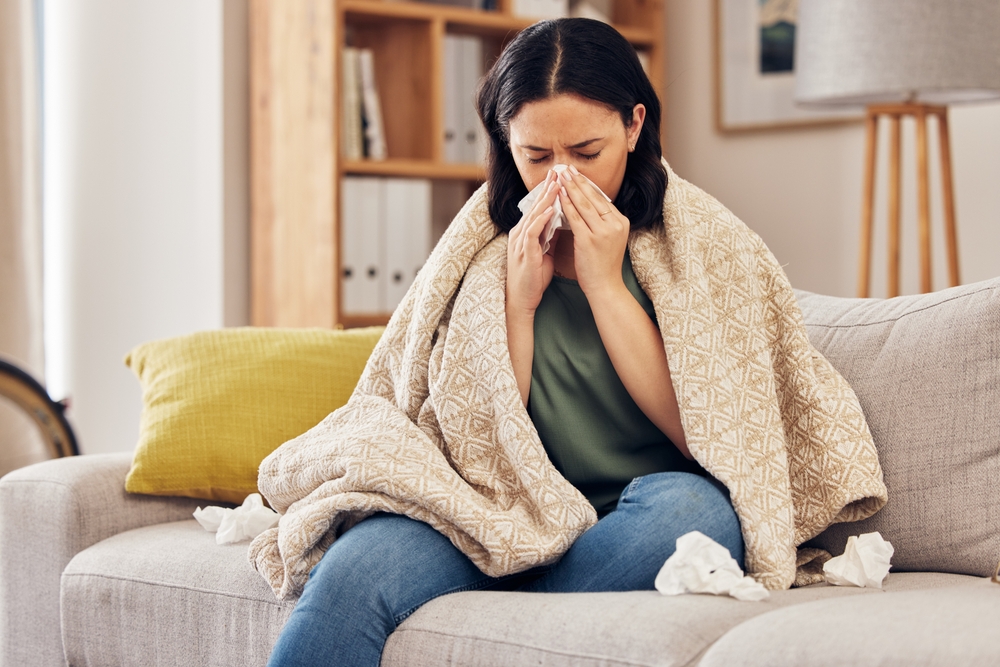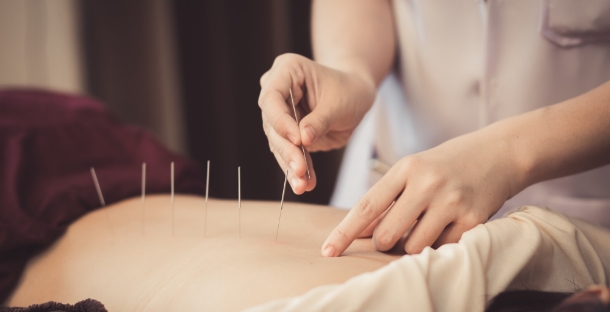
Treating Summer Colds With Traditional Chinese Medicine
We can probably all agree that summer colds are the worst. They creep up on you at the worst times and tend to linger for weeks. Even if your symptoms are mild, dealing with the sniffles or a cough and generally being run down is a drag when everyone else is out soaking up the sunshine. There may never be a “cure” for the common cold, but there are definitely ways to treat and even prevent them. Traditional Chinese Medicine offers a wealth of wisdom about what causes summer colds, how to remedy them, and how to safeguard from getting sick during the summer months.
What are summer colds?
In Traditional Chinese Medicine, all sickness and disease result from imbalance or disharmony in your body. Your specific symptoms indicate what kind of imbalance you are suffering from. Often, imbalance will leave you more vulnerable to external pathogens. Specifically heat, cold, wind, and dampness are the primary forms of external pathogens that will make you sick.
Colds can be attributed to too much wind entering the body. Wind causes changes and motion in parts of the body where it normally doesn’t exist, and this results in becoming sick. There are two types of wind, wind-cold or wind-hot. Wind-cold will cause symptoms of aversion to cold, cough, fever, runny nose with white watery mucus, occipital stiffness, and aches with no sweating or thirst. Wind-hot will cause symptoms of aversion to cold, fever, sneezing and coughing, runny nose with slight yellow mucus, slight sweating, itchy and sore throat, swollen tonsils, and feeling of thirst.
Why do we get summer colds?
Generally, colds occur when you lack defensive Qi (pronounced “chee”). Defensive Qi is the type of Qi responsible for warding off external pathogens. What often happens is that we only focus on supporting our immune system and preventing colds during flu season – i.e. during the colder months of the year. The reality is that pathogens don’t disappear with the cold weather.
The long days filled with sunshine and beautiful weather lull us into a false sense of security and that’s what leads to problems. It’s easy to over-exert yourself in this high Yang season, which eats into your energy reserves. Likewise, people tend to overindulge in cold foods like ice cream, frozen smoothies, and ice water to combat the heat. This introduces a lot of cold into your body that is not only harmful to your internal organs, but will suppress your immune response.
Another factor that is commonly overlooked is the impact of air conditioning. Going from very hot to colder temperatures can be taxing on your body. One of the main ways that wind infiltrates your body in the summer is from being exposed to AC without covering your neck, upper back, and chest. The lungs are the most vulnerable organ to wind, so keeping those areas covered is important.
Why are the seasons important in Traditional Chinese Medicine?
In Traditional Chinese Medicine, the body is viewed as a microcosm of the larger surround universe. Each season corresponds with one of the five natural elements – fire, earth, metal, water, and wood. These elements also exist within us. The abundance of a season’s element can cause imbalance that disrupts our health. To maintain good health, TCM councils that we pay close attention to the bodily system’s most influenced by each season’s element, to nourish our bodies with foods that promote balance, and to engage in activities that harmonize with that season’s energy.
The principle of the five elements
There are five elements in TCM: wood, fire, earth, metal, and water. All of nature can be organized into one of the five elements. Called Wu Hsing in Chinese, the five elements principle provides us with a blueprint to understand how nature interacts with and impacts our bodies. Every element has a season, direction, climate, stage of growth, internal organ, emotion, and aspect of the soul. To maintain harmony and balance, we need equal measures of each of the five elements.
Summer according to Traditional Chinese Medicine
Summer is a time of abundant energy, long days, and sunshine. This is the time of year to start using all that energy you stored up during winter. Summer is ruled by the fire element, which is intense, dynamic, warm, and moving. It’s also associated with Yang energy, and represents expansion, movement, and activity. Summer presents us with the opportunity to put in motion all of the plans we formed in winter and spring.
The two organs that correspond with summer are the heart and small intestine. The heart, which pumps blood throughout our bodies, is also the home to our Shen, or spirit. As such, it is considered to be the source of our internal harmony.
The small intestine is one of our digestive organs. Its role in eliminating waste or unnecessary products extends to separating the pure and impure. This includes not just the physical aspect of digesting nutrition, but to how we process information and our emotions.

How to treat summer colds
The last thing anyone wants is to deal with lingering symptoms that prevent them from enjoying summertime activities. The following are traditional remedies to bolster defensive Qi and restore balance in your body.
Acupuncture and cupping
Acupuncture is designed to activate and support your body’s ability to heal itself. In this regard, acupuncture strengthens your immune response, which means you’ll fight off your cold faster. The treatment is also highly effective at expelling the external pathogens that caused you to get sick in the first place and increase your defensive Qi.
Cupping is another method used in Traditional Chinese Medicine that involves applying suction on your skin. It is particularly effective at treating respiratory conditions and addressing congestion caused by excess phlegm and mucus in your lungs.
Medicinal herbs
The use of medicinal herbs is a large component of Traditional Chinese Medicine. These herbs have a wide variety of applications. For treating colds, goldenseal and echinacea are recommended for their antiviral and antibacterial properties. Ginger tea will also help with decongesting your chest and sinuses.
There is also Yin Qiao San, a remedy your acupuncturist is likely to recommend for colds. It’s a blend of several different herbs that has a reputation for knocking colds out before they can set in. While the formula for Yin Qiao San will be tailored to each patient, it commonly contains the following:
- Honeysuckle flowers
- Peppermint leaves
- Fermented soybeans, or natto
- Forsythia
- Bamboo leaves
- Edible burdock
- Balloon flower root
If you are taking prescription medications, you should be aware that some medicinal herbs will interact with or reduce the efficacy of your meds. Before taking any herbal remedies, you should talk to your pharmacist and doctor to ensure they are safe for you.
Nourish your body
As we’ve mentioned, eating too many cold foods is not conducive to your health. This is especially true with colds. While it may seem antithetical to be eating warming foods during hot weather, soups can be the best thing for a cold. A few bowls of homemade chicken soup with lot of garlic will have you feeling much better.
How to prevent summer colds
If you’re familiar with Traditional Chinese Medicine, then you know the best remedies are preventative. The idea is to keep your body in balance, so you don’t become susceptible to things like summer colds. You probably already do some of these things instinctively during flu season, but it’s worth going over them.
Firstly, it’s important that you tend to the health of your lungs. Due to the nature of respiration, they are the most vulnerable internal organ to invading pathogens. You can safeguard your lungs by keeping your neck, chest, and upper back covered in windy weather and in overly air-conditioned areas.
Your ability to fight off invading pathogens is directly tied to how much defensive Qi you have. Going for regular acupuncture treatments, avoiding cold or icy foods, and ensuring you are getting enough sleep will all help maintain your defensive Qi. (More information about supporting your immune system can be found here.)
Lastly, be mindful of the foods you eat. Every season has foods that are best for supporting your health. In the summer, those foods include watermelon, cucumber, sprouts, and bok choy. Just remember that it is best if raw foods like fruits are eaten at room temperature, and to avoid putting ice or frozen fruit in your drinks.
Whether or not you’ve had the misfortune of catching a summer cold, one of the best things you can do for your health is to book your acupuncture appointment today!



